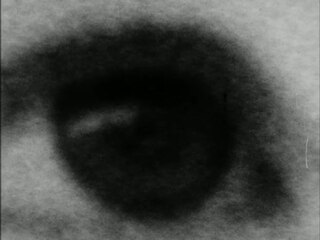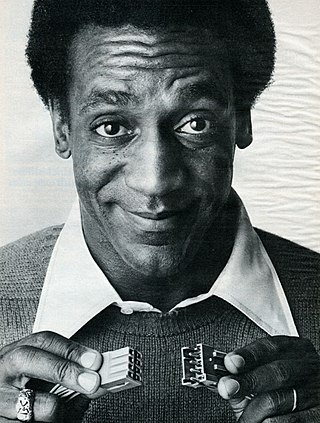Related Research Articles

Advertising is the practice and techniques employed to bring attention to a product or service. Advertising aims to present a product or service in terms of utility, advantages and qualities of interest to consumers. It is typically used to promote a specific good or service, but there are a wide range of uses, the most common being the commercial advertisement.
Film promotion is the practice of promotion specifically in the film industry, and usually occurs in coordination with the process of film distribution. Sometimes this is called the press junket or film junket. Film promotion generally includes press releases, advertising campaigns, merchandising, franchising, media, and interviews with the key people involved in making the film, such as the film's actors and directors. This process is an important part of any release because of the inherent high financial risk; film studios will invest in expensive marketing campaigns to maximize revenue early in the release cycle. Marketing budgets tend to equal about half the production budget. Publicity is generally handled by the distributor and exhibitors.

Leonardo Wilhelm DiCaprio is an American actor and film producer. Known for his work in biographical and period films, he is the recipient of numerous accolades, including an Academy Award, a British Academy Film Award, and three Golden Globe Awards. As of 2019, his films have grossed over $7.2 billion worldwide, and he has been placed eight times in annual rankings of the world's highest-paid actors.

A television advertisement is a span of television programming produced and paid for by an organization. It conveys a message promoting, and aiming to market, a product, service or idea. Advertisers and marketers may refer to television commercials as TVCs.
Frank Sepe is an American fitness author, magazine editor, TV personality, and a fitness model of Italian and German descent.

Got Milk? is an American advertising campaign on television and YouTube encouraging the consumption of milk and dairy products. Created by the advertising agency Goodby Silverstein & Partners for the California Milk Processor Board in 1993, it was later licensed for use by milk processors and dairy farmers. It was launched in 1993 by the "Aaron Burr" television commercial, directed by Michael Bay. The national campaign, run by MilkPEP began to add the "got milk?" logo to its "Milk Mustache" ads in 1995.

A parody advertisement is a fictional advertisement for a non-existent product, either done within another advertisement for an actual product, or done simply as parody of advertisements—used either as a way of ridiculing or drawing negative attention towards a real advertisement or such an advertisement's subject, or as a comedic device, such as in a comedy skit or sketch.

"New Kid on the Block" is the eighth episode of the fourth season of the American animated television series The Simpsons. It originally aired on Fox in the United States on November 12, 1992. After meeting his new neighbor, Laura, Bart falls in love with her, only to later discover that she has a boyfriend, Jimbo Jones, whom he attempts to scare off so that he can have a relationship with Laura. Meanwhile, Homer sues the Sea Captain Horatio McCallister after being kicked out of his all-you-can-eat restaurant while still hungry.

In politics, campaign advertising is propaganda through the media to influence a political debate and, ultimately, voting. Political consultants and political campaign staff design these ads. Many countries restrict the use of broadcast media to broadcast political messages. In the European Union, many countries do not permit paid-for TV or radio advertising for fear that wealthy groups will gain control of airtime, making fair play impossible and distorting the political debate.

Alcohol advertising is the promotion of alcoholic beverages by alcohol producers through a variety of media. Along with nicotine advertising, alcohol advertising is one of the most highly regulated forms of marketing. Some or all forms of alcohol advertising are banned in some countries. There have been some important studies about alcohol advertising published, such as J.P. Nelson's in 2000.
In the United States, commercial radio stations make most of their revenue by selling airtime to be used for running radio advertisements. These advertisements are the result of a business or a service providing a valuable consideration, usually money, in exchange for the station airing their commercial or mentioning them on air. The most common advertisements are "spot commercials", which normally last for no more than one minute, although extended versions, commonly running for up to 45, 60 or more minutes, are termed "informercials" because they delve deeper into detailed information on and stories about commercial product or service offerings.

Fast food advertising promotes fast food products and utilizes numerous aspects to reach out to the public.
St George is a multi-award-winning television commercial for the British soft drink, Blackcurrant Tango. The commercial was created by Chas Bayfield and Jim Bolton at the UK advertising agency, HHCL + Partners and was directed by Colin Gregg at the production company Eclipse for the client David Atter at Britvic.

Erin Heather Bubley, known professionally as Erin Heatherton, is an American former model. She was a Victoria's Secret Angel from 2010 to 2013.

The Most Interesting Man in the World was an advertising campaign for Dos Equis beer featuring actor Jonathan Goldsmith as a bearded, debonair older gentleman with voiceovers that were both humorous and outrageous. The advertisements began appearing in the United States in 2006 and became a popular Internet meme. The campaign ended in 2018.

American comedian and actor Bill Cosby was a popular spokesperson for advertising from the 1960s – before his first starring television role – until the early 2000s. He started with White Owl cigars, and later endorsed the Jell-O frosty ice pop treats Pudding Pop, gelatin, Del Monte, Ford Motor Company, Coca-Cola, American Red Cross, Texas Instruments, Service Merchandise, E. F. Hutton & Co., Kodak, and the 1990 United States Census. As of 2002, Cosby held the record for being the longest-serving celebrity spokesperson for a product, through his work with Jell-O. In 2011, he won the President's Award for Contributions to Advertising from the Advertising Hall of Fame.
Orange Man is a British television advertisement for the soft drink Tango Orange. Created by advertising agency HHCL, a longtime collaborator of Tango. The advertisement was produced in 1991 and aired in 1992, and was the first in the brand's "You Know When You've Been Tango'd" campaign that would continue until 1996 before returning for several years in the 2000s.

The Audition is a 2015 comedy short film directed by Martin Scorsese and written by Terence Winter. It stars Robert De Niro and Leonardo DiCaprio, playing fictionalized versions of themselves, who travel through Asia and compete against each other for a potential role in Scorsese's next film. Brad Pitt, also playing a fictionalized version of himself, makes a cameo appearance.
TV advertisements by country refers to how television advertisements vary in different countries and regions.
References
- ↑ Waltrous, Malena "How U.S. stars sell Japan to the Japanese" from Salon.com. June 29, 2000.
- ↑ Celeb Objects to Image on Foreign Ad-Spotting Site. August 26, 2002.
- ↑ Story, Louise. "Seeing Stars Archived 2006-10-29 at the Wayback Machine ". Originally printed in The New York Times . October 12, 2006.